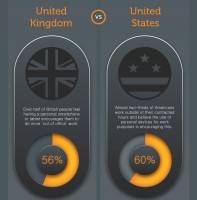To provide the best experiences, we use technologies like cookies to store and/or access device information. Consenting to these technologies will allow us to process data such as browsing behaviour or unique IDs on this site. Not consenting or withdrawing consent, may adversely affect certain features and functions.
The technical storage or access is strictly necessary for the legitimate purpose of enabling the use of a specific service explicitly requested by the subscriber or user, or for the sole purpose of carrying out the transmission of a communication over an electronic communications network.
The technical storage or access is necessary for the legitimate purpose of storing preferences that are not requested by the subscriber or user.
The technical storage or access that is used exclusively for statistical purposes.
The technical storage or access that is used exclusively for anonymous statistical purposes. Without a subpoena, voluntary compliance on the part of your Internet Service Provider, or additional records from a third party, information stored or retrieved for this purpose alone cannot usually be used to identify you.
The technical storage or access is required to create user profiles to send advertising, or to track the user on a website or across several websites for similar marketing purposes.
 New research released today by McDonald’s UK, reveals more than half of UK adults want to move away from traditional working patterns, choosing jobs that enable them to enjoy more flexible working and prioritise commitments outside of work. This study was conducted in July and August, with YouGov as well as with McDonald’s employees. Its key finding is that Jobs that offer earlier starts and a shorter working week most appealing to job seekers; with only 6 percent of people working the traditional ‘9-5’
New research released today by McDonald’s UK, reveals more than half of UK adults want to move away from traditional working patterns, choosing jobs that enable them to enjoy more flexible working and prioritise commitments outside of work. This study was conducted in July and August, with YouGov as well as with McDonald’s employees. Its key finding is that Jobs that offer earlier starts and a shorter working week most appealing to job seekers; with only 6 percent of people working the traditional ‘9-5’
































June 18, 2016
Productive workplaces + Long hours link to ill health + Coworking rise 0
by Sara Bean • Cities, Comment, Environment, Facilities management, Flexible working, Furniture, Newsletter, Technology, Wellbeing, Workplace